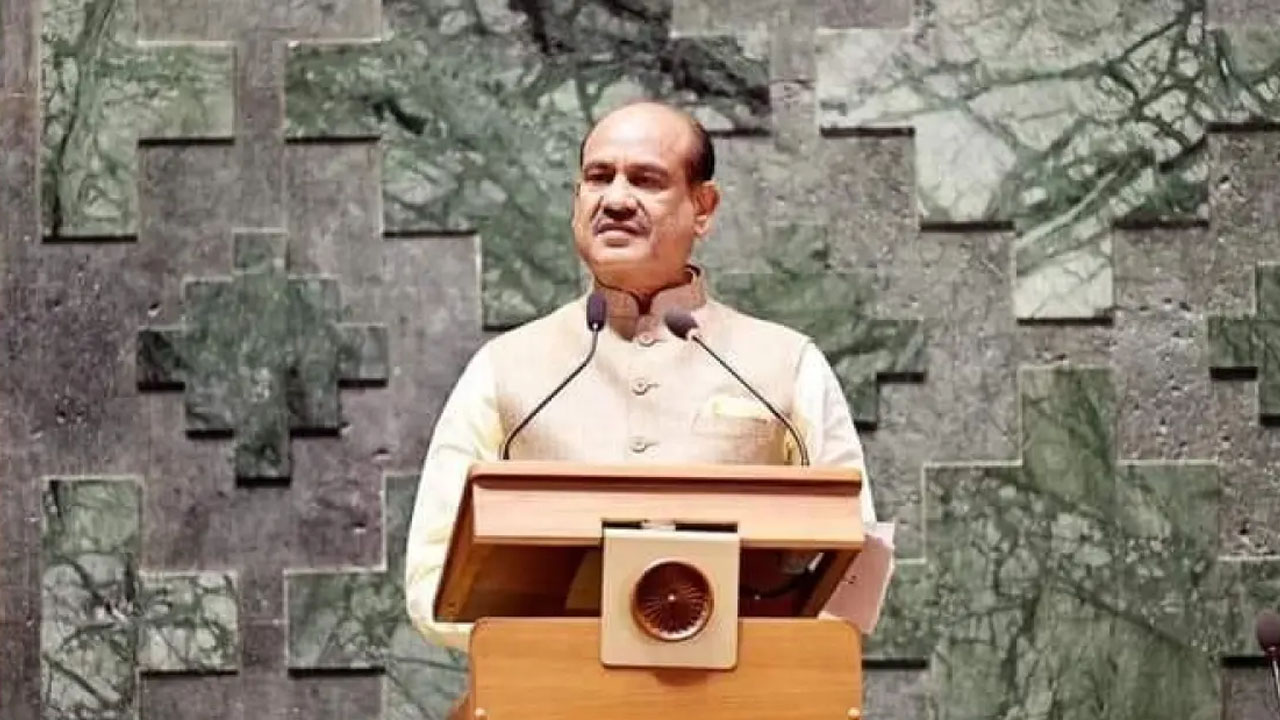A rare moment of unity unfolded in Parliament today as Om Birla was re-elected as Lok Sabha Speaker by a voice vote. Leader of the Opposition Rahul Gandhi walked up to congratulate Mr. Birla, shaking hands with Prime Minister Narendra Modi in a brief show of camaraderie. Along with Parliamentary Affairs Minister Kiren Rijiju, the leaders escorted Mr. Birla to the Speaker’s chair.
Prime Minister Modi lauded Mr. Birla, stating, “Your sweet smile keeps the entire House happy. It is a matter of honour that you have been elected to this chair for the second time.” Opposition leaders echoed the congratulations but emphasized the importance of allowing diverse voices to be heard in Parliament.
Controversial Silence for Emergency
Addressing the House, Mr. Birla urged all members to work collectively for the nation and maintain decorum, stressing the need to differentiate between protests in the House and those on the street. He then called for two minutes of silence to mark the 50th anniversary of the Emergency, referring to it as the “dark days of Emergency.”
This call for silence immediately triggered protests from the Opposition benches, leading to a chaotic scene and an abrupt adjournment of the House. Congress MP Shashi Tharoor criticized the move, calling it a “divisive” statement that undermined the spirit of consensus on a day meant for unity and cooperation.
Historical Context and Political Implications
This year marks the 50th anniversary of the Emergency, a period from 1975 to 1977 when then-Prime Minister Indira Gandhi suspended constitutional rights and imposed strict controls on the press and political opposition. According to BJP sources, acknowledging such historical events is crucial for educating the younger generation about the importance of democracy and the Constitution.
However, the timing of Mr. Birla’s statement was seen by many as politically charged, detracting from the intended message of cooperation. The Opposition highlighted the importance of their role in Parliament, with Mr. Gandhi stating, “The question is not how efficiently the House is run, but how much of India’s voice is being allowed to be heard.”
Opposition’s Grievances and Calls for Fairness
The absence of a Deputy Speaker from the opposition in the previous Lok Sabha and the lack of movement on appointing one this time around fueled further dissatisfaction. Rahul Gandhi criticized the government for its apparent double standards, stating that while the Prime Minister speaks of cooperation, actions taken by the government suggest otherwise.
“Rajnath Singh called Mallikarjun Kharge and asked for support. The entire opposition agreed, but insisted that the Deputy Speaker should come from our side. Rajnath said he would call back, but he never did,” Mr. Gandhi lamented. This situation underscores the ongoing tensions and the need for genuine dialogue and cooperation in Parliament.
The Deputy Speaker’s post has traditionally been given to an opposition MP, but it remained vacant in the last Lok Sabha. The BJP had previously appointed M. Thambi Durai of its ally AIADMK to the position, highlighting the ongoing political maneuvering and the challenges of maintaining democratic balance in India’s parliamentary system.
This incident serves as a stark reminder of the complexities and tensions that pervade Indian parliamentary proceedings and the challenges in striving for a democratic balance that respects diverse voices and perspectives.
(With inputs from agencies)








